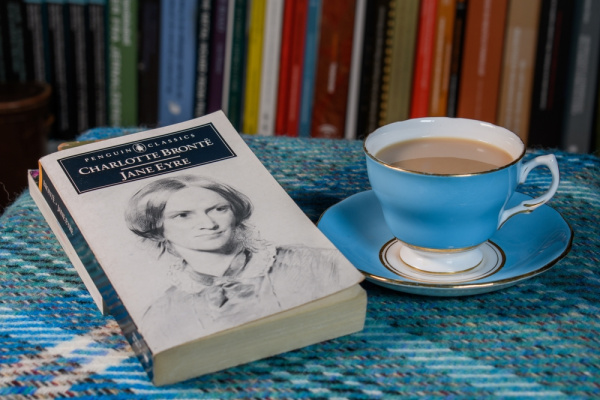Mindfulness and writing
Mindfulness and writing
Mindfulness and writing
-
Hannah
-
Hannah

It seems to me that too much of today’s Western world is focused on speed. It’s become natural to eat fast. Work fast. Walk fast. Talk fast. To text a friend, rather than phone, because it’s quicker. To email a letter, rather than handwrite it, because it’s quicker. To get all our groceries from a supermarket rather than shopping around in local specialist stores because… you guessed it: it’s quicker. We seem to be marching to some pounding rhythm that thrums, Come on, hurry, come on, hurry.
I write that this has become natural, in the sense that it’s second nature to us, but is this natural? Is this a way of life that serves us well? Why are we rushing about?
Perhaps the rise of technology is to blame, pulling us into a world of speed and disconnection from the world around. Perhaps it is down to competition – the culture of bigger, better, brighter, which of course means faster. Or perhaps the exhausting galloping through life goes hand in hand with the medical advances of the past century: because we can live longer, we want to so very much, and the ticking of time becomes something that haunts us.
Whatever the reason, the increase in speed is clear, and it manifests in so many aspects of life, especially in culture. Have you noticed how the tempo of popular music has increased? How film storylines are so much faster paced than they were 30, 40 years ago?
Have you noticed how books are changing?
I grew up reading classic literature. Books that are long, detailed and descriptive, and in no great hurry to barrel towards the final scene. My degree is in French literature, and if you’ve read any of the French Romantic writers of the nineteenth century, you’ll know that you don’t really get into the story before page 100. Balzac and Stendhal are typical of that, and they are my favourite writers. In classic literature, there is so much depth to the writing, and the time you put into the reading is rewarded: you feel, at the end of the book, that you have achieved something, been changed somehow, really escaped the confines of your daily life.

Compare this way of writing, from the days when life’s pace was slower, with modern fiction. Undoubtedly, there is a trend today to write ‘quick’ stories, to leave out all but the most essential detail; to focus on plot and dialogue and pare down description and depth; to move along at pace, forcing the reader to keep turning the pages. Of course, such a style works wonderfully in the thriller genre, and some readers appreciate this pace in other genres too. But if this were the only way to write a book today then I fear that reading – that wonderful activity for relaxation and escape – would become just another stimulating, fast input for a tired mind.
Are you familiar with the concept of mindfulness? It’s from Buddhist meditation and it involves being attentive to the reality of things, especially the present moment. The ‘father’ of modern mindfulness was Thich Nhat Hanh, a Thiền Buddhist. In his words:
Peace is present right here and now, in ourselves and in everything we do and see. Every breath we take, every step we take, can be filled with peace, joy, and serenity. The question is whether or not we are in touch with it. We need only to be awake, alive in the present moment. – Thich Nhat Hanh, Peace Is Every Step: The Path of Mindfulness in Everyday Life
Mindfulness is an excellent practice for anyone who feels drained by the pace of modern life and disconnected from what really matters: the self, loved ones, nature, spirituality. The more often you are mindful, the more often you are calm – and, according to the Buddha, you are further along the path of enlightenment.

You can be mindful in many areas of your life: taking a moment to notice the scent of a rose in a garden, for example, or really appreciating the taste of an apple you’ve bitten into. I believe that the practice of mindfulness has a place in writing too. I believe that writers should not be afraid to slow down. We can write longer books. We can take the time to build our story worlds, to paint a vivid mental picture for the reader. We can explore depths in the writing; we can make room for developing the story and the characters.
My own practice of mindfulness has been a wonderful help to me in my writing life. Many of the details in my novels are based on my own experiences of being truly present in a time and space. I have listened to a flamenco guitarist in Andalucía; I have gazed up at the Great Pyramid of Giza; I have tasted dolmades on a Greek island; I have smelled the lemon groves by Lake Como. All of these moments, and so many more, have inspired details in my novels.
The Eastern philosopher Lao Tzu said, ‘Nature does not hurry, yet everything is accomplished.’ I feel this is a good philosophy to inspire how we write. Writing slowly, mindfully, is a pleasure – and when we write this way, we create a gift: a book that the reader, too, can enjoy slowly and mindfully.

Picture credits: 1) Dmytro Zinkevych/Shutterstock; 2) Doodeez/Shutterstock; 3) mimagephotography/Shutterstock; 4) Darius Bashar/Unsplash.
Love this! As a romance writer myself, I agree!